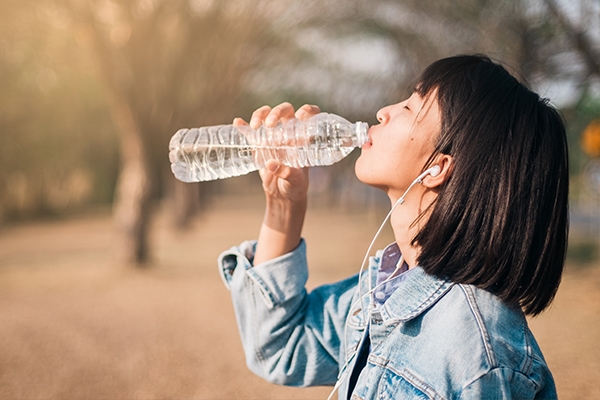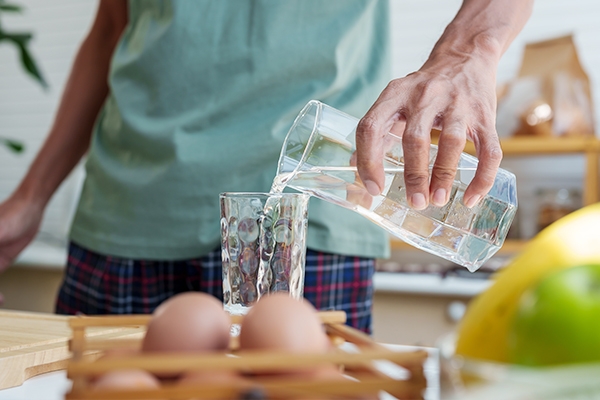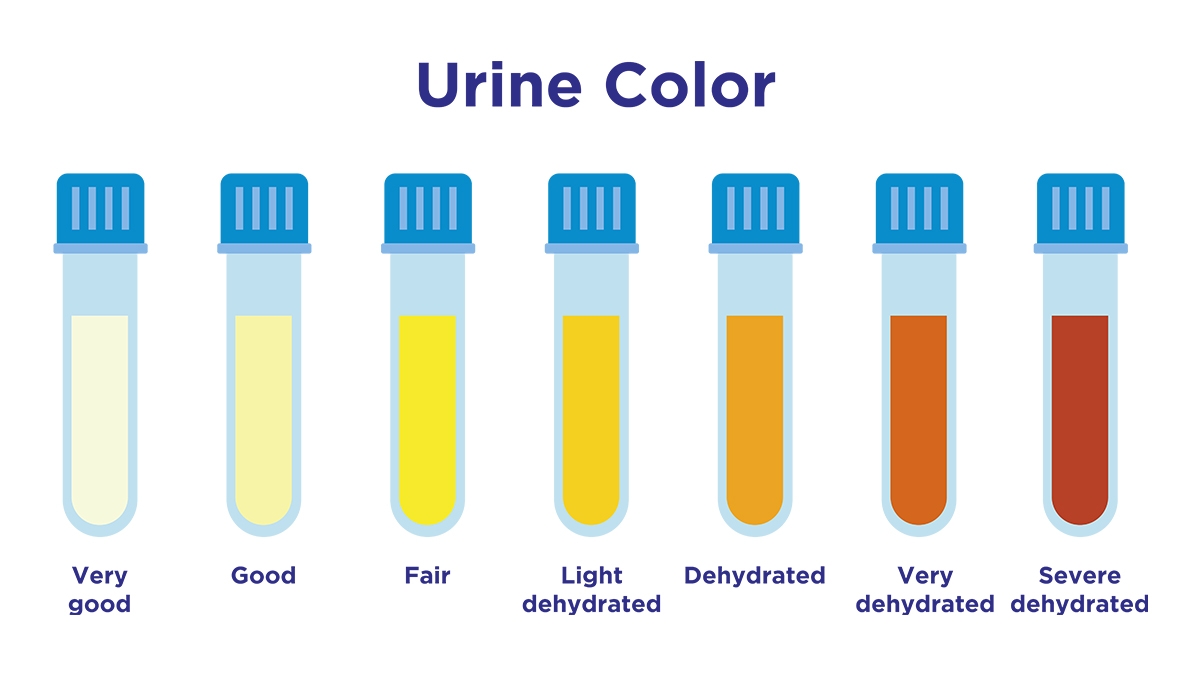Is Water Good for Your Kidney?

Everyone's hydration needs are different. Therefore, it is critical to adjust your water intake accordingly. Drinking water regularly helps to keep the body balanced and healthy.
Water is the most essential food for the body, especially the kidneys. It is cheap, easy to get, has zero calories, and is free of additives such as sugar.
Outdoor activities or exercising can lead to fluid loss, especially in hot weather when sweating increases. This is when the need for hydration becomes more urgent.
Urine color can be an indicator of hydration levels. Bright yellow or colorless urine suggests the body is well hydrated, while darker urine indicates a lack of fluids. This demonstrates how the kidneys regulate the body’s water needs.
This is proof that the kidneys work, namely regulating the water needed by the body. This small organ knows exactly how much water the body needs. The kidneys will excrete excess water as urine if the amount is too much. When water reserves are low, the kidneys help the body retain water to keep it functioning.
In addition to removing excess water from the body, the kidneys are responsible for filtering toxins and removing them from the body through urine. In addition to regulating water needs, the kidneys have other important functions for the body.
Both of our kidneys produce hormones that regulate the production of red blood cells (erythropoietin), controlling blood pressure, and activating vitamin D, which is essential for bone health.
Hydration and kidney health

Is drinking enough water good for the kidneys? Yes, of course. Because water does not contain additives, it naturally hydrates the body. Drinking enough water helps the kidneys work better.
Drinking extra fluids can also help prevent kidney stones and other issues like chronic kidney disease.
But, how much water should we drink? Of course, it must be adjusted to our needs. So far, we know that we should drink 8 glasses per day. How much water we consume depends on age, weather, intensity of activity, and certain conditions, such as pregnancy, breastfeeding, or illness.
What happens if the body lacks fluids? Dehydration can interfere with body functions. Mild dehydration can cause fatigue. Meanwhile, severe dehydration can lead to kidney damage and harm other organs. In blood vessels, dehydration can promote blood clots that increase the risk of hypertension.
Dehydration also impacts the skin. Continuous dehydration can cause skin to seem wrinkled rather than hydrated.
7 tips for maintaining kidney health

Considering that kidney function is very vital, we must keep it in good condition. Don't wait until you are unwell to appreciate their importance. Here are tips for keeping your kidneys healthy:
1. Drink enough water
Eight glasses per day is a common recommendation, but it’s not a rigid rule. Individual needs vary, so listen to your body. Regular hydration helps compensate for daily fluid loss and supports kidney function. Aim to drink small amounts of water throughout the day.
2. Drink less if you have kidney failure
For people with kidney failure, especially those undergoing dialysis, water intake must be carefully regulated. The damaged kidney may not produce urine effectively, and consuming too much fluid can lead to weight gain, swelling, and fluid buildup in the lungs or heart, which can become life-threatening.
3. Pay attention to your urine

Urine is a good indicator of hydration. Pale yellow or colorless urine suggests adequate hydration, while dark yellow indicates dehydration. Ideally, you should produce about 1.5 liters (approximately 6 cups) of urine daily.
4. Staying hydrated can help prevent kidney stones and UTIs
Kidney stones and urinary tract infections (UTIs) are two common health problems that can damage the kidneys. Therefore, good hydration is crucial. Kidney stones are less likely to form when there is enough water to keep the crystals that form the stones from clumping together.
To further reduce the risk of kidney stones, eat a low-sodium diet, limit animal protein intake to 0.8 grams per kilogram of body weight (around 45 grams for women and 55 grams for men), and consume plenty of fruits and vegetables. Limit oxalate-rich foods like spinach, beets, nuts, and soy if you are prone to stones.
Drinking water also stimulates urine production, which aids in the elimination of infection-causing bacteria when you urinate.
5. Limit water intake when necessary
Long trips and having to use the toilet can be uncomfortable. In these situations, limiting your water intake is acceptable. Holding your urine for too long can cause bladder irritation and urinary tract infections.
6. Eat a healthy diet
What you eat has a significant impact on kidney health. Unhealthy foods high in fat, salt, and sugar can lead to conditions like high blood pressure, obesity, and diabetes, which can damage the kidneys over time. A balanced diet rich in vegetables, fruits, whole grains, and minimally processed foods is essential.
7. Exercise regularly
Like a healthy diet, exercise helps prevent diabetes and heart disease that can cause kidney damage. However, too much exercise can cause fatigue, tiredness, muscle pain, cramps, and damage to muscle tissue due to an injury known as rhabdomyolysis.
A condition that if left untreated can lead to kidney failure and other complications such as low electrolyte levels and acid buildup in the blood (metabolic acidosis).
Aim for 30-60 minutes of exercise at least five days each week. Start slowly if you haven't exercised in a long time. Talk to your doctor if you have any health problems.
**
Making simple lifestyle changes, such as drinking enough water, can help keep your kidneys healthy. But remember, everyone's kidneys are different, so enough can vary from person to person.



